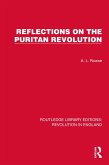In "Reflections on the Revolution in France," Edmund Burke articulates a profound critique of the 1789 French Revolution, positioning it against the backdrop of Enlightenment thought and its implications for social order. With eloquent prose that combines philosophical examination and political commentary, Burke warns against the dangers of radical change and the upheaval of traditional structures. His work serves not only as a contemporary response to revolutionary fervor but also as a foundational text in political conservatism, emphasizing the importance of gradual reform and the wisdom embedded in established institutions. Edmund Burke, an Irish statesman and philosopher known for his advocacy of civil rights, developed his ideas against the turbulence of his time, witnessing both the American Revolution and the onset of the French Revolution. His experiences and insights into the social contract and governance greatly influenced his views on the necessity of tradition and moral philosophy in maintaining societal stability-a core theme in this work. "Reflections on the Revolution in France" is essential reading for anyone seeking to understand the complexities of revolution and the perennial tension between change and continuity in society. Burke's arguments resonate through modern discourse on governance and citizenship, offering valuable lessons on the necessity of preserving historical wisdom amidst the clamor for progress.
Dieser Download kann aus rechtlichen Gründen nur mit Rechnungsadresse in A, B, BG, CY, CZ, D, DK, EW, E, FIN, F, GR, H, IRL, I, LT, L, LR, M, NL, PL, P, R, S, SLO, SK ausgeliefert werden.









